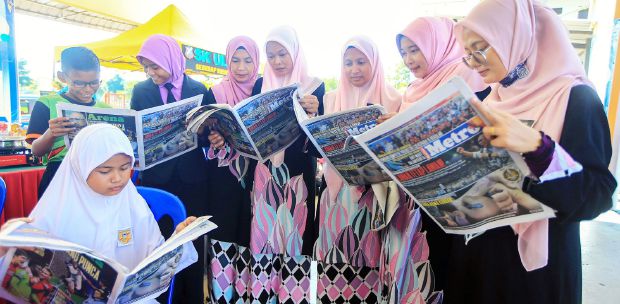Medical interns or better known here as housemen are much an aggrieved lot.
One, who has been undergoing training for nearly two years, lamented to me the other day in the midst of current controversies over their perceived inability to handle pressure during training: “It’s terrible. I personally don’t know how long I can last. Too many patients, too few housemen. The hours are extremely long and when I’m on duty from 7am to 10pm, I don’t eat at all. Not that I’m on a diet but I just can’t find the time to eat”.
It is understood that in Australia, nobody, not even housemen, can work more than 45 hours a week. The houseman said in addition to the long hours, there was hardly a day off. “Don’t forget we are humans, too.”
The denudation follows Chief Secretary to the Government Tan Sri Dr Ali Hamsa’s disclosure early last week that housemen made up the highest number of civil servants served with termination notices. It was said that many housemen would disappear from work, at times for hundreds of days, because they couldn’t take the pressures of working in a public hospital.
Now, that is serious.
There are now about 10,000 housemen attached to government hospitals nationwide, including those who graduated from foreign universities. Of the number, at least 20 per cent have difficulties with training and have been asked to extend their internships for up to six to eight months. Last year, 1.2 per cent of housemen were either dismissed or had quit because it was said they could not take the heat. This included those who did not show up for many months, some for 400 days.
Malaysia has a doctor-to-population ratio of 1:633. The target is for the country to achieve a 1:400 ratio by 2020.
The number of medical practitioners in the country is about 35,000 overall, which means there needs to be 87,177 doctors by 2020 when the country’s projected population is 35 million.
Because of this, more government scholarships have been made available for medical studies (from 600 to 800 per year) and more openings for medical practitioners in the ministry’s health facilities.
There are more than 30 institutions offering medical programmes locally. The strength of medical students in each medical faculty varies. Two private colleges in the southern region with twinning programmes have 1,457 students here and another 1,229 overseas, with a total of 2,686. A new prestigious private university college has a total of 95 medical students.
So, in the need for more doctors, there must be more housemen. But, there seems to be a conflict of ideas here among those in charge.
A Malaysian Medical Association past president once said: “Unless the government controls medical education, there may be a glut of doctors by 2017 or 2018.”
On the one hand, Malaysians aspire to take the country to become a developed and high-income nation in a few years, which means a sufficient number of doctors.
But, the way housemen are treated and the way things are going for most of them, the number is hard to achieve.
And, it is indeed hard to understand. When a student aspires to become a doctor, the student studies hard, makes the grade, but why must the person fall behind during housemanship?
Horror stories are plenty if you speak to housemen. The stress some of them suffer comes not only from the insults of their superiors, but also from the steep expectations placed upon them. When one mistake happens, their superiors just berate them in front of patients and visitors. And, that’s when the problem normally starts. It’s supposed to be a school of hard knocks no doubt. But, when it has become a school of knockouts, we have to take notice.
One school of thought: what needs to change in Malaysia is the hierarchical relationship between housemen and their superiors. If everyone just learns to treat each other more like colleagues like they do in the West, then there is a much better working environment.
But the big question remains. What is the ministry doing about the high number of dropouts in the face of achieving the right ratio of doctors to the population?
Syed Nadzri is a former NST group editor






